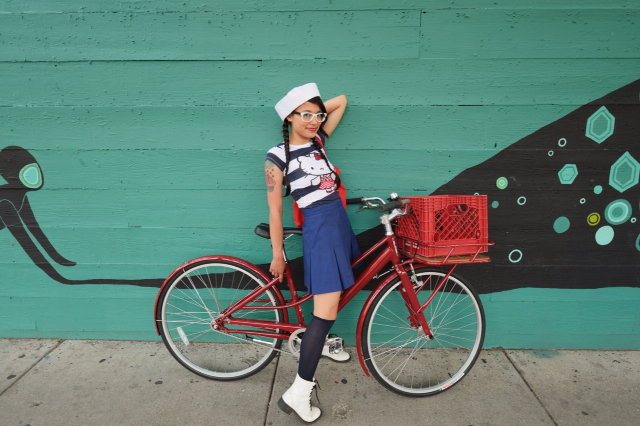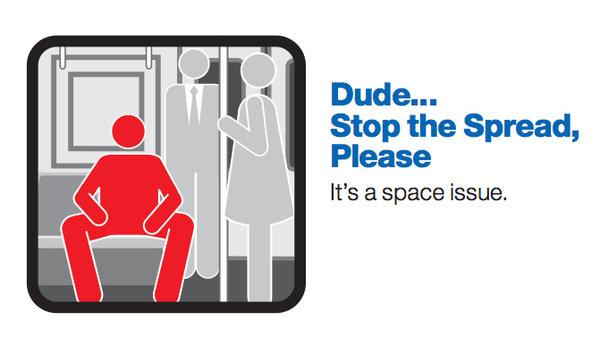Happy Word Buzz Wednesday! It’s that time when we round up five buzzworthy words we’ve noticed in the news recently. This week: a next generation hipster; what not to spread on the subway; and an Australian word of the year.
cutester
“Because cutesters are up on the latest technology, they are good at adopting hipster fashions — much in the manner that a cuckoo learns to mimic the call of the bird whose nest he has usurped.”
Richard Godwin, “The cutester: meet London’s latest social stereotype,” London Evening Standard, December 16, 2014
You heard it right. Not only do we have the hipster to deal with — now we have the cutester.
Richard Godwin at the London Evening Standard describes the cutester as the hipster’s “younger sibling,” a “juvenescent” who is “unwilling to give up childish things such as Nintendo games, Halloween costumes and breakfast cereal,” but at the same time is more “technologically minded.”
The word cutester is a combination of cute and –ster, a suffix that means “a person who…” The Online Etymology Dictionary says -ster was once used primarily as a “feminine agent suffix” (e.g., spinster).
The word cute was originally a shortened form of acute meaning keen, perceptive, or quick, and came to mean pretty or attractive around 1834, coming from U.S. student slang. Cutesy meaning artificially or annoyingly cute is from 1968.
“It is manspreading, the lay-it-all-out sitting style that more than a few men see as their inalienable underground right.”
Emma G. Fitzsimmons, “A Scourge Is Spreading. M.T.A.’s Cure? Dude, Close Your Legs,” The New York Times, December 20, 2014
Manspreading refers to a style of sitting, primarily by men, on subways and other public transportation in which the sitter spreads his (or her) legs very wide, taking up more than his (or her) fair share of seat space. The MTA of New York has begun putting up posters requesting manspreaders to please “stop the spread.”
However, manspreading isn’t the only form of bad subway etiquette. There’s leaning, pole hugging, and many others. Gothamist also makes the distinction between horizontal and vertical spreading.
Panic Saturday
“Black Friday was followed by Panic Saturday as shoppers thronged town centres preparing to spend an estimated £1.2bn on last-minute gifts before Christmas Day.”
Ashley Cowburn, “Retailers report a shopping bonanza on ‘Panic Saturday,’” The Guardian, December 20, 2014
Panic Saturday is, as Quartz says, “the last major shopping day before everything shuts down and Christmas kicks in with full force.”
Other popular shopping days in Great Britain include Boxing Day, Black Friday (despite the fact that Brits don’t celebrate Thanksgiving), and Cyber Monday. An immensely popular shopping day in China is Singles Day.
paper bag party
“We see it too in the ‘paper bag parties’ held by some upper-class black people who wouldn’t let anyone in who was darker than a paper bag.”
Alexis Barnes, “Artist Nate Hill’s New Website Asks Users to Judge Skin Color,” Vice, December 12, 2014
The brown paper bag principle is related to colorism or shadism, which is discrimination within a race based on the darkness of one’s skin.
This kind of discrimination began during slavery times, say historians, because “light-skinned blacks, often the children of slaves and their white masters, got better treatment.”
Later, lighter skin became associated with privilege and beauty, and light-skinned blacks even began forming exclusive clubs. For instance, Blue Vein societies only accepted members who were light enough to show blue veins through their skin.
shirtfront
“When Prime Minister Tony Abbott pledged to ‘shirtfront’ Russian President Vladimir Putin at the G20 summit over the MH17 tragedy, it set the scene for an epic showdown between the two leaders.”
Judith Ireland, “‘Shirtfront’ wins Australian National Dictionary Centre’s word of the year award,” The Sydney Morning Herald, December 10, 2014
Shirtfront, the Australian National Dictionary Centre’s word of the year, is an Australian Rules football term that means “a fierce tackle, usually delivered by the shoulder to the chest of an opponent,” or “the act of delivering such a tackle.” Shirtfront is also a term in cricket that means “a pitch that is easy to bat on.”
In recent years, says the Australian Broadcasting Company, shirtfront in Australian Rules football has become less popular, being replaced by “the less colourful term, ‘bump’.” A synonym for shirtfront might be body check.
[Photo via Flickr, “Sailor Girl,” CC BY 2.0 by Lorena Cupcake]

